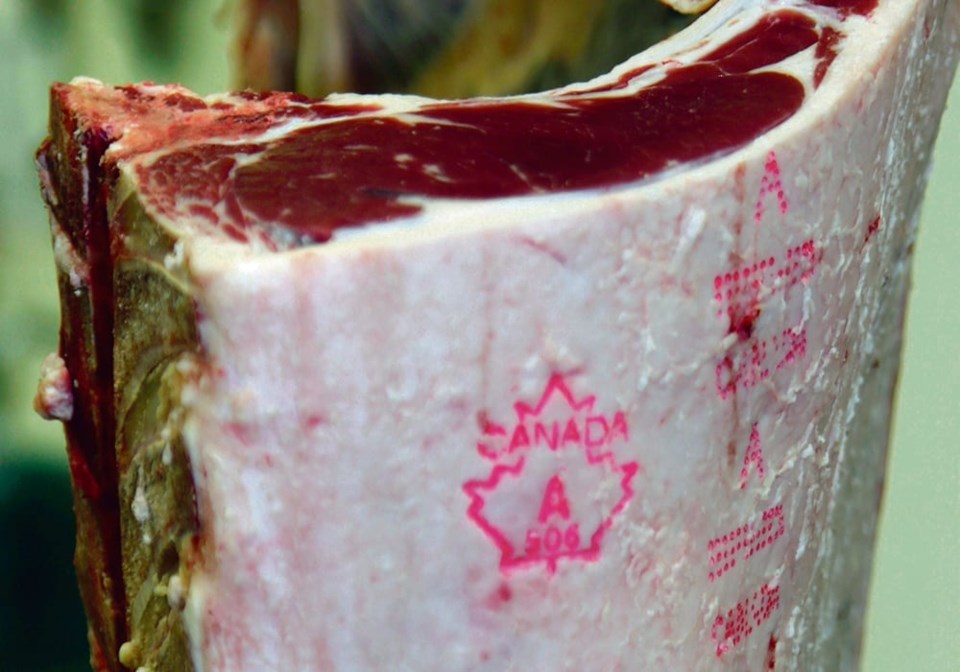WESTERN PRODUCER — Beef imports from the United Kingdom are up 177 per cent in the first four months of 2024.
Canada imported $10.2 million worth of beef from Jan. 1 until the end of April.
That’s a significant increase from the same period in 2023, when beef imports from Britain were $3.7 million.
If the pace continues for the remainder of 2024, Canadian beef imports from the U.K. would top $30 million for the year.
It would be similar situation to 2022, when Canada purchased $33 million worth of beef from the U.K.
As for Canadian beef exports to Britain, Canada has not shipped any beef to the U.K. this year.
The trade data is from Agriculture Canada, which supplied the figures to the Western Producer in early July.
The data is significant for Canada-U.K. relations because red meat was a major reason for the breakdown in free trade talks between the two countries.
Britain suspended trade discussions with Canada in late January, claiming the talks had hit a wall.
“We have always said we will only negotiate trade deals that deliver for the British people. And we reserve the right to pause negotiations with any country if progress is not being made,” a U.K. government spokesperson said Jan. 25.
A sticking point for the U.K. government was exports of British cheese to Canada. Prior to Jan. 1, 2024, British cheese makers had tariff-free access to the Canadian market for a certain volume of cheese.
That tariff-free quota ceased to exist when a temporary free trade deal, a continuity agreement between Canada and Britain, came to an end Dec. 31. Canada imposed tariffs on U.K. cheese starting in January.
From the Canadian side, Britain’s ban on beef from Canada has been unacceptable.
Since 2022, Canada’s beef exports to Britain have essentially been zero because the U.K. will not recognize the safety of Canada’s food system or permit imports of beef produced with growth hormones.
The British position on beef raised with hormones goes all the way to the prime minister.
In an open letter to farmers, published last year, PM Rishi Sunak took a hardline stance on imported beef.
“Without exception, we will continue to protect food standards in the U.K. under all existing and future free trade agreements,” Sunak wrote.
“There will be no chlorine-washed chicken and no hormone-treated beef on the U.K. market. Not now, not ever.”
The Canadian Cattle Association says the British position is not based in science and is disconnected from Canada’s global reputation for food safety.
“Unfortunately, the U.K. has shown no indication that it is prepared to fully accept Canada’s food safety system, which is widely recognized as one of the finest in the world,” said a CCA news release from Jan. 25.
“Until the U.K. barriers to Canadian beef are resolved, Canadian producers will continue to be at a disadvantage. The U.K. currently has unlimited access for British beef exports to Canada while Canadian beef producers are unable to export into the U.K. market.”
The British advantage has been very apparent in the first four months of 2024.
Canadian beef exports to Britain are zero and U.K. exports to Canada are more than $10 million.
Imports from EU also jump
European countries are also taking advantage of Canada’s willingness to maintain open markets.
- EU beef exports to Canada were $32.5 million in the first four months of 2024
- That’s an increase of 29 per cent from the same period in 2023, when imports were worth $25 million
Ireland and Italy were the main exporters, shipping $16.5 million worth of beef to Canada.
Meanwhile, Canada’s exports of beef to the EU have declined in 2024.
From January until the end of April, Canada shipped $6.3 million in beef to the EU.
That’s down from $10.6 million during the same time period in 2023.
When the figures are combined, Canada ran a trade deficit in beef with the U.K./EU of $36 million.
Extrapolated for a full year, the trade deficit with Europe and Britain could top $100 million in 2024.
Contact [email protected]




